
Origin Systems unleashed a milestone with Exodus: Ultima III, a role‑playing game that invites you to play online and lead a band of champions across a vibrant fantasy realm. Comparable to the seminal Wizardry saga and the first Might and Magic game, this timeless quest blends deep exploration, clever tactics, and genuine moral choice. Every screen, from overworld to dungeon, pulses with crisp 8‑bit graphics and a rousing score that amplifies each triumph. Whether you crave nostalgia or a fresh challenge, Exodus: Ultima III endures as a landmark game that rewards careful planning and imaginative play.
Origin Systems released Exodus: Ultima III, expanding the Ultima saga beyond its solo‑hero origins into a fully fledged party‑based epic. Under Richard Garriott’s direction the studio fused expansive overworld adventuring with tactical battles and an intricate storyline, forging a landmark role‑playing game that continues to inspire designers decades later.
Few early titles conveyed a living landscape as convincingly as Exodus: Ultima III. The scattered isles of Sosaria teem with dense forests, poisonous swamps, hidden shrines, and isolated castles, each painted in crisp tile graphics that remain evocative. Players are free to traverse oceans, descend multi‑level dungeons, and question townfolk whose cryptic clues weave an ever‑thickening tapestry around the unidentified menace called Exodus. Instead of forcing one linear route, the game rewards curiosity: a ruined keep might hide a mystic weapon, while a hermit deep in the woods whispers the first hint of a devilish endgame puzzle.
The journey seldom feels hollow because the narrative threads are dispersed organically: a castle jail reveals the name of a renegade mystic; an obscure poem references three bell tones that later unlock the path to Exodus itself. Such environmental storytelling predates modern open‑world design trends and ensures that each detour, whether into a forgotten keep or across a reef‑choked bay, rewards attentive players with fresh insight or tangible power.
Strategic combat forms the beating heart of the game. Unlike its predecessors’ more solitary approach, Exodus introduces a four‑member party whose classes, races, and alignments can be mixed for surprising synergies. Fights shift to a separate tactical grid where positioning, spell timing, and efficient item usage determine survival. Mages unleash fields of flame, clerics dispel phantoms, thieves slip through enemy lines, and fighters fortify the front. Because every action costs precious turns, the simplest skirmish can evolve into a tense contest of zoning, resource management, and risk assessment.
Difficulty curves gently upward, but every few hours the stakes rise when alien creatures invade or a sea serpent ambushes the party mid‑voyage, forcing improvisation. Because enemies pursue their own movement turns, clever exploitation of terrain—bridges, choke points, narrow dungeon halls—can neutralize superior numbers. Meanwhile, the absence of random critical hits keeps outcomes reliant on planning rather than luck, a philosophy later echoed by heavyweight franchises like Fire Emblem and Divinity.
Modern enthusiasts can rediscover—or experience anew—the journey of Exodus: Ultima III online. Contemporary emulation preserves the original code while allowing the game to run free of charge directly in a browser, seamlessly adapting to mobile devices without restrictions. The iconic Apple ][ color palette and jaunty score remain intact, yet load times vanish and responsive controls translate effortlessly to touch screens or keyboards. Because all essential data travels with the session, exploration feels immediate, and newcomers can experiment without fear of technical hurdles. Long after floppy disks faded from desks, this classic remains only a tap or click away, ready to welcome the next generation of adventurers.
To measure Exodus: Ultima III solely by its immediate impact would undersell its enduring influence. It popularized multi‑character parties in computer RPGs, introduced early morality mechanics that rewarded virtue over brute force, and foreshadowed genre‑spanning finales by blending medieval fantasy with science‑fiction technology. Later series such as Final Fantasy, Baldur’s Gate, and even indie roguelikes trace lineages back to the freedom, tactical depth, and narrative ambition refined here. Beyond mechanics, the game proved that a small team armed with creativity could deliver worlds as vast and compelling as those found in top‑selling tabletop modules, setting precedents for independent development that echo through today’s thriving retro scene.
Exodus: Ultima III may render its world with a modest palette and chunky sprites, yet the artistry achieves something many flashier successors miss: personality. Cavern walls glow lavender, lava rivers flicker with animated menace, and nocturnal sailing beneath a crescent moon feels genuinely serene. Composer Kenneth W. Arnold’s score shifts from jaunty town jigs to ominous dungeon motifs, reinforcing place and mood while scarcely consuming memory. Even the staccato clicks of footsteps and sizzling spell effects—tiny by modern standards—convey weight, transforming routine exploration into a symphony of anticipation. The game’s restrained aesthetics invite imagination to fill gaps, proving that evocative design can thrive without photorealism.
Exodus: Ultima III remains a timeless game that invites patient exploration, strategic thinking, and a spark of imagination. Movement is elegantly simple: arrow keys guide your party across the world map, single‑key commands handle actions such as attack, cast, open, and search, and number keys let you shift focus between characters. After four decades the adventure still rewards diligence and curiosity, offering secrets to those willing to listen closely and map carefully.
All codes powering this legendary quest are publicly available, and full ownership rightly belongs to Origin Systems and the original authors.
Share game
Share game

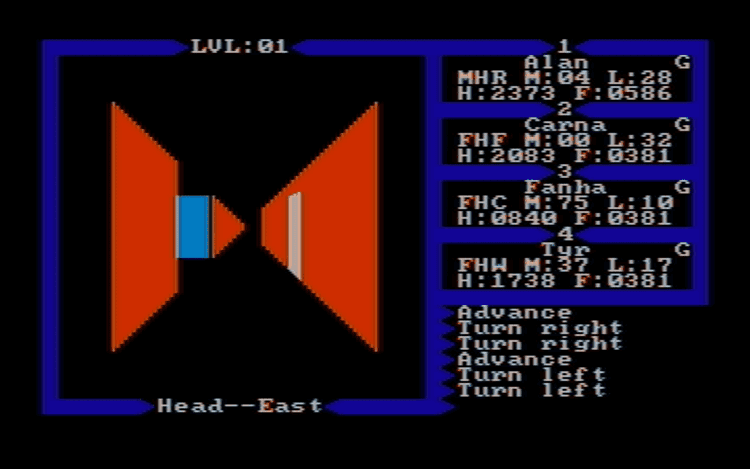
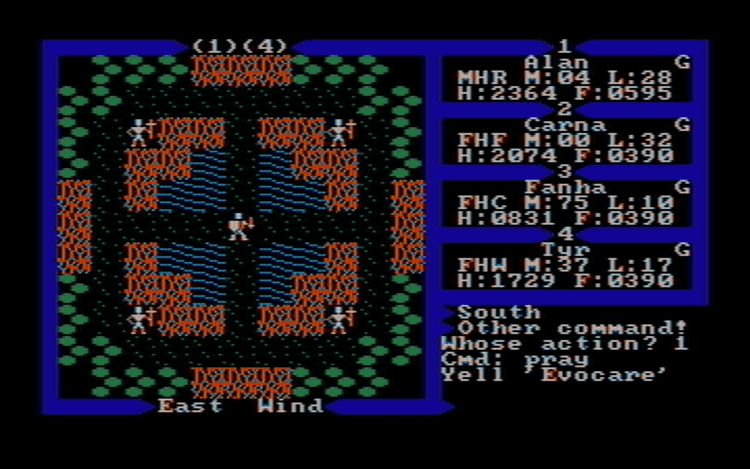
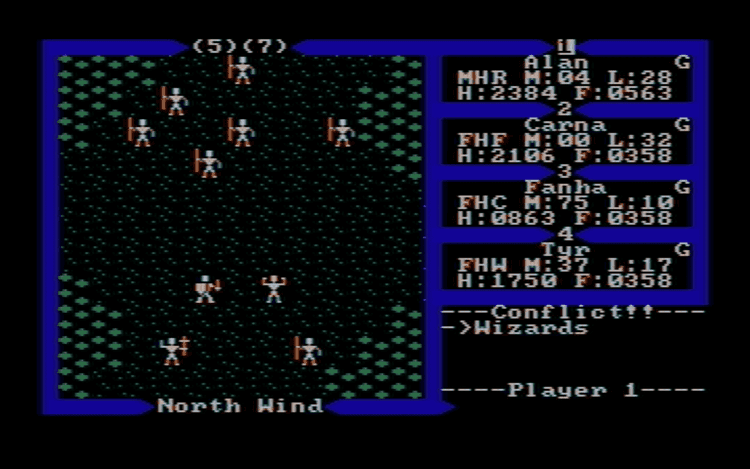
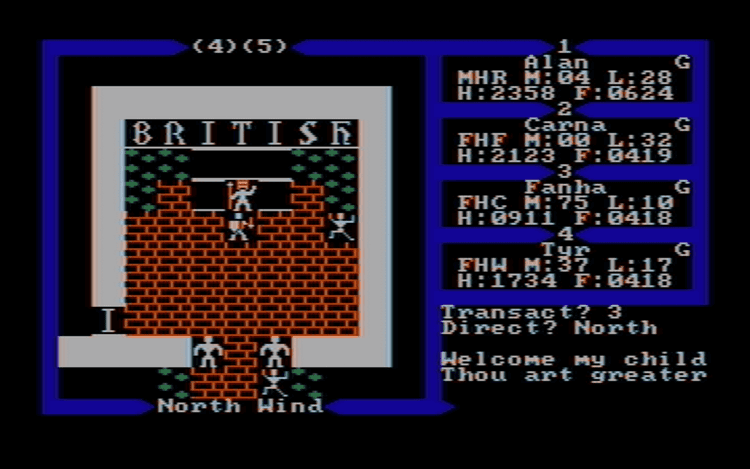
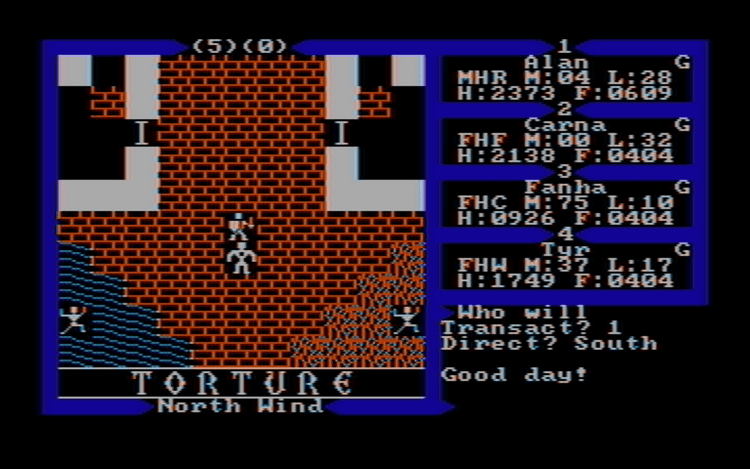

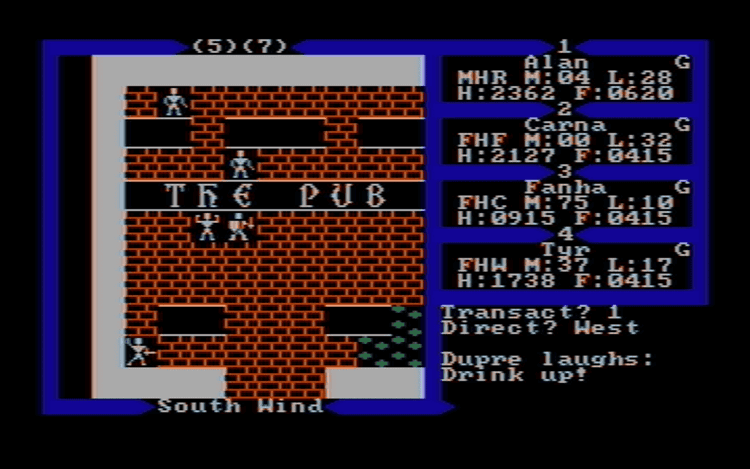
Share game